A glimpse into the world of Bactobio with Grace Cox and Shinjini Mathur who are unleashing the power of microbes to produce novel antimicrobials - from culturing novel strains to harnessing their potential for global health solutions.
Imagine a world where the next global health crisis is averted and the global food supply is secured, all thanks to the tiny powerhouses that are microbes. At Bactobio, we’re not just imagining – we are working to make it a reality.
Microbes are the most genetically diverse organisms on the planet and can produce a broad variety of chemicals. Currently, some of these chemicals have been repurposed for applications spanning from industrial processes to healthcare. However, only 1% of microbes have been successfully cultured under standard laboratory conditions, leaving a staggering number of microbes and their important chemicals untapped. Accessing these is where Bactobio’s mission begins.
Standing at the forefront of biotechnology, Bactobio is pioneering new approaches to exploring previously unculturable microbes. Our synergistic approach combines next-generation sequencing, machine learning, and bioengineering allowing us to understand how these diverse microbes grow, how to culture them, and unlock their potential. Our exclusive microbial library is a vault of chemical possibilities, and our first goal is to identify new antimicrobials to confront the looming antimicrobial resistance crisis head-on.
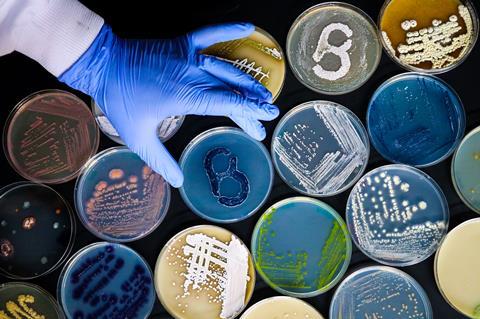
I’m Grace and alongside my colleague, Shinjini, we are part of the Microbial Generation team at Bactobio. In this team, we take pride in managing the core pipeline for isolating, identifying, and characterising novel soil microbes. Shinjini handles the initial stages of the pipeline, using conventional 16S Sanger sequencing techniques for the taxonomical identification of soil microbes. She subsequently isolates and preserves novel microbial species, adding to Bactobio’s expanding library.
Library of microbes
Once novel microbes are identified and cultured, they undergo whole-genome sequencing using Oxford Nanopore systems. I work closely with our Sequencing Lead Scientist and bioinformaticians to run and optimise our sequencing capabilities. We currently have more than 2,800 novel microbes in our library, and data from whole-genome sequencing helps us identify intriguing biosynthetic gene clusters that might produce antimicrobial compounds. The novel microbes we isolate and identify are then screened for novel compounds by the compound discovery team.
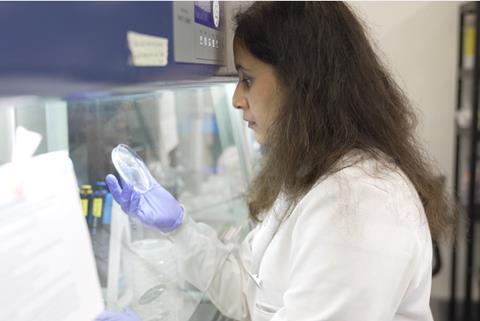
Working with cutting-edge technologies
Our lab at Bactobio is a vibrant hub where each day brings new challenges and discoveries. While our tasks are diverse, keeping our days engaging and varied, we each have our core roles that drive our research forward.
For instance, on a typical day, Shinjini has more than 500 microbes growing, all for the purpose of identification. She skilfully harvests the microbes of interest, creating glycerol stocks and simultaneously preparing them for DNA extractions.
Meanwhile, my primary focus is on assembling genomic libraries for sequencing. I often joke, ‘Each day in the lab brings me closer to closing my activity ring,’ highlighting the hands-on aspect of our work. In the early stages of the team growth, much of my work used to involve routine tasks in assay preparation. However, now at Bactobio we’ve started investing in cutting-edge technologies and leveraging automation, which has enhanced the efficiency of our high-throughput sequencing processes. This pivotal shift allows me to delve deeper into the nuances of our research, greatly enriching our exploration and understanding of the microbial world.
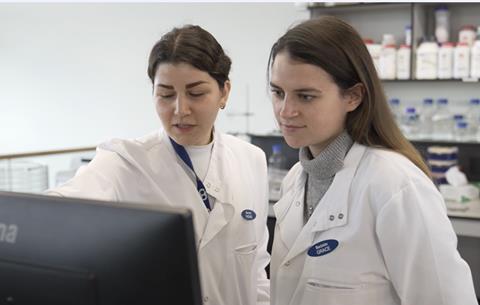
Rewarding balance between research and lab work
Reflecting on memorable moments, I recall a particularly challenging project that evolved into a nine-month quest to develop a Mycobacterium abscessus reporter strain. The objective was to engineer a strain of this bacterium that exhibited luminescence, aiding the compound screening process. The intricate genetic engineering required precisely integrating luminescent markers into the bacterial genome without disrupting its natural properties. The moment we saw those colonies glow was a career highlight – it was both thrilling and deeply gratifying.
Life in our microbiology lab is filled with these moments of intense focus, punctuated by lighter, quirkier aspects – like finding everyday pantry items in our fridge, repurposed for our unique microbial culture studies. It’s this blend of intricate science and spontaneous fun that makes each day at Bactobio unique and extremely fulfilling.
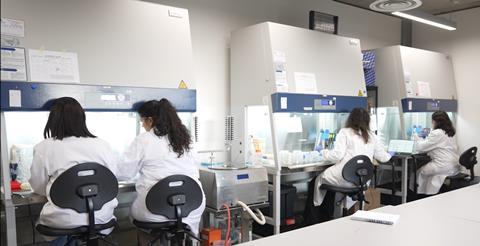
Translating scientific discoveries into real-world impact
My fascination for the sciences began at an early age, inspired by the captivating world of science fiction. This early curiosity evolved into a deep interest in biology, prompting me to explore the fundamentals of life. Similarly, with Shinjini, throughout my academic journey, I delved into the study of the complex world of microbes and their profound impact on health, ecosystems, and technology. This marked a transition from a broad interest in biology to a specialised focus on the micro-universe.
Joining Bactobio was a significant turning point in our careers. Moving from the theoretical realm of academia to the practical world of research at Bactobio, we found ourselves at the heart of impactful scientific work. Bactobio is a fantastic place to start and further a career in microbiology. We have an opportunity to engage in research that melds rigorous scientific investigation with practical application, constantly presenting us with challenges and rewards. It’s truly inspiring to know that the work we do could have far-reaching impacts, not just within the field of microbiology but in the broader context of global health and environmental sustainability.
What we especially value here is the collaborative spirit in the lab. Working alongside some of the brightest minds in the field, our colleagues, coming from diverse academic and professional backgrounds, bring a wealth of knowledge and perspectives. This collaborative environment not only facilitates working together but also fosters learning from each other, contributing to our personal and professional growth. We’re truly grateful to be part of such an enriching and forward-thinking team at Bactobio.
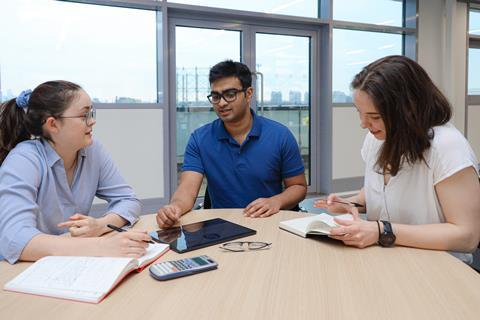
For aspiring microbiologists, our advice is simple yet crucial: seize every opportunity to engage with experienced professionals. Don’t hesitate to connect with experts, whether they’re in academia or industry. Collaboration is a key part of scientific progress, offering invaluable opportunities for learning and networking. Moreover, gaining practical lab experience is critical. Beyond classroom learning, hands-on lab work is essential for developing the skills and insights needed in this field. We encourage you to seek internships or lab positions that enable you to apply theoretical knowledge in practical settings, as these experiences are fundamental in shaping a successful career in microbiology.
If you wish to join us in our journey uncovering nature’s hidden answers, we are always looking for science enthusiasts who want to make a difference and explore some of the biggest questions in nature. Bactobio is currently recruiting for a Head of Microbiology - find out more HERE.







No comments yet